First, study any unfamiliar words here:
| 🏆award🏆 Definition: An award is a prize or recognition given to someone for a special achievement. Example Sentences: She received a big award for her excellent painting. The teacher gave an award to the top student in the class. 🏔️avalanche🏔️ Definition: An avalanche is a large amount of snow and ice that suddenly falls down a mountain. Example Sentences: The climbers had to stop because of the risk of an avalanche. The avalanche covered the road, making it impossible to drive through. 🦁bravery🦁 Definition: Bravery is the quality of being ready to face danger, pain, or difficult situations without fear. Example Sentences: She showed bravery by speaking up for her friend. Facing a bear in the forest requires a lot of bravery. 🏙️citizen🏙️ Definition: A citizen is a person who legally belongs to a country and has certain rights and duties there. Example Sentences: As a citizen, she votes in every election. Every citizen must follow the law of the country. 🧗climber🧗 Definition: A climber is a person who participates in the sport or activity of climbing, often mountains or cliffs. Example Sentences: The climber reached the top of the mountain after many hours. He bought new gear to become a better climber. 🎼compose🎼 Definition: To compose means to create or write music, or sometimes other forms of art or text. Example Sentences: Mozart could compose music very quickly. She wants to compose her own songs for the piano. 💪courage💪 Definition: Courage is the strength to do something that frightens you or to face difficult situations without giving up. Example Sentences: He found the courage to tell the truth, even though it was hard. Going on stage to sing in front of a crowd takes a lot of courage. ⚛️electrons⚛️ Definition: Electrons are tiny, negatively charged particles that move around the center of an atom. Example Sentences: Einstein’s work helped us understand how electrons behave. When electrons flow through a wire, they create an electric current. ⏳eventually⏳ Definition: Eventually means after some time or in the end, especially after a delay. Example Sentences: She kept practicing every day, and eventually she became a great dancer. If you save money, eventually you can afford a bigger trip. 🕊️freedom🕊️ Definition: Freedom is the power or right to act, speak, or think without being limited or controlled. Example Sentences: Nelson Mandela fought for the freedom of all people in South Africa. Many people celebrate their country’s freedom on a special holiday. 💡genius💡 Definition: A genius is a person who has exceptional intellectual or creative power or natural ability. Example Sentences: Many people called Einstein a genius because of his ideas. The young musician was seen as a genius when she composed her first symphony. 🌍gravity🌍 Definition: Gravity is the natural force that pulls objects toward one another, especially toward the earth. Example Sentences: Gravity keeps us on the ground and stops us from floating away. Einstein’s theory changed our understanding of how gravity works. ✊human rights✊ Definition: Human rights are basic freedoms and protections that belong to every person. Example Sentences: Nelson Mandela worked hard to protect human rights in his country. Many groups fight to ensure everyone’s human rights are respected. 🧠intelligence🧠 Definition: Intelligence is the ability to learn, understand, and think about things in a logical way. Example Sentences: He used his intelligence to solve difficult math problems. People sometimes show different kinds of intelligence, such as musical or emotional. 👑leadership👑 Definition: Leadership is the action of guiding or directing a group of people toward a goal. Example Sentences: Nelson Mandela showed leadership by helping his country move away from apartheid. Good leadership often means listening to others before making decisions. 🏃movement🏃 Definition: Movement is the act of changing position or place, or a group’s action toward a shared goal. Example Sentences: Exercise involves constant movement of the body. The movement for equal rights brought many people together. ❤️passion❤️ Definition: Passion is a strong feeling of enthusiasm or love for something or someone. Example Sentences: Mozart had a passion for creating music. Her passion for art led her to paint every day. 🤝reconciliation🤝 Definition: Reconciliation is the act of making peace between people who have argued or fought in the past. Example Sentences: Mandela’s Truth and Reconciliation Commission helped heal old wounds. After a big disagreement, the friends worked on reconciliation. ⚖️rights⚖️ Definition: Rights are the freedoms and powers that people are allowed to have by law or moral principles. Example Sentences: Every child has the right to go to school. The law protects the rights of all citizens. ♟️strategy♟️ Definition: A strategy is a plan of action designed to achieve a goal or deal with a problem. Example Sentences: Cleopatra used strategy to protect Egypt from powerful enemies. The coach made a careful strategy for winning the game. |
Word Count: 1824
Reading Level: CEFR B2
5 Amazing People
Einstein / Mandela / Mozart / Tabei / Cleopatra
Albert Einstein – Scientist
Albert Einstein was a famous scientist from Germany. He was born in 1879 in the city of Ulm. As a child, he wanted to learn about everything. One day, his father showed him a compass. Albert wondered why the needle always pointed north.
Einstein loved to study math and physics. When he was young, he lived in Germany and Switzerland. Sometimes people say he did badly in school, but that is not completely true. He had good grades in math, but he did not enjoy strict rules.
In 1905, Einstein wrote several important papers. This year is called his “miracle year.” He introduced new ideas about light and movement. He also wrote about the theory of special relativity. This theory changed how people understand time and space.
Later, he created the theory of general relativity. This theory explained gravity in a new way. It showed how large objects, like stars and planets, can bend space around them. His ideas were amazing and helped us to understand the universe more deeply.
In 1921, Einstein won the Nobel Prize in Physics. He did not receive the award for relativity, but for his work on the photoelectric effect. This effect explains how light can knock electrons out of certain materials. New technologies were invented because Einstein discovered important truths about light.
Einstein did not like war. In the 1930s, he left Germany because of the Nazi government. He moved to the United States, where he worked at a special place of learning in Princeton, New Jersey. He became a US citizen (officially allowed to stay) in 1940.
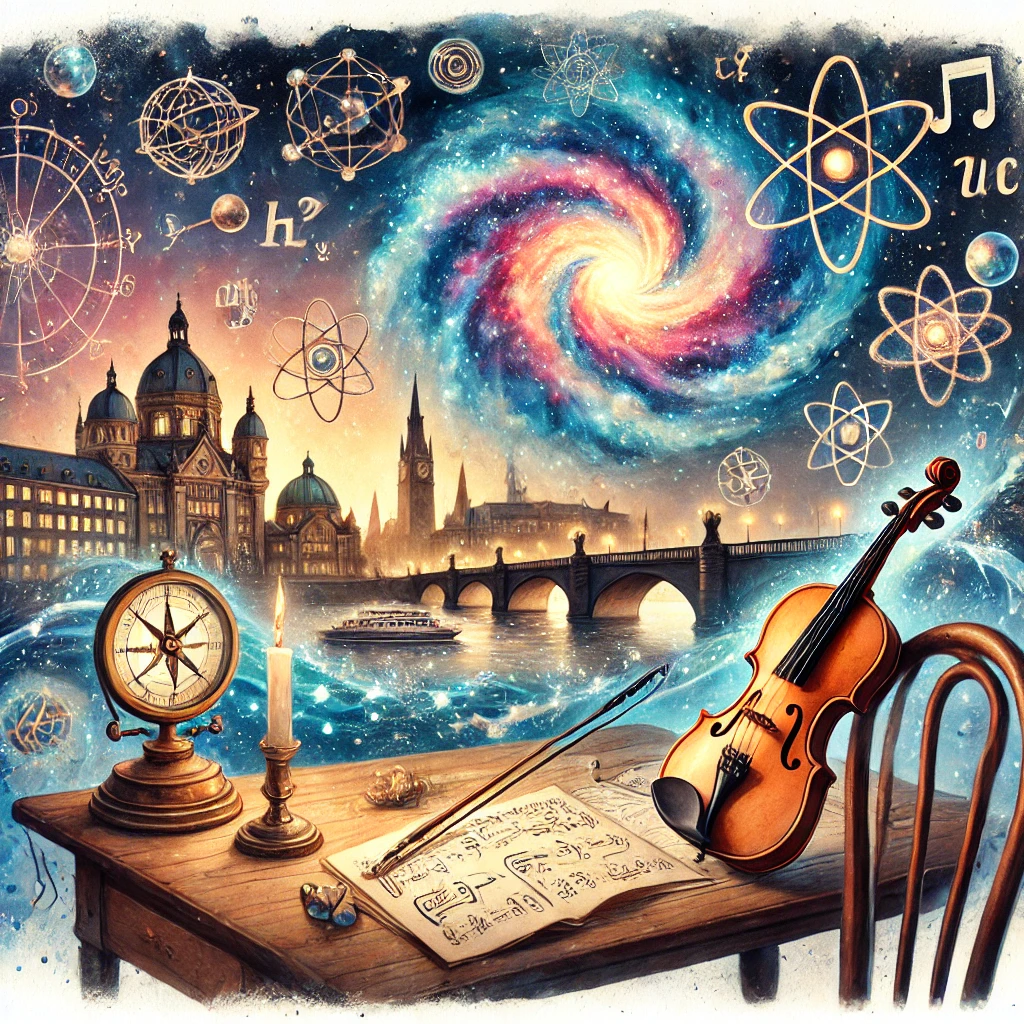
Einstein was also a modest man. People called him a genius, but he said he was only trying to understand everything better. He often played the violin to relax. His hair became famous too, because it was wild and white. He was kind to other people.
Albert Einstein died in 1955. Even after his death, his work continued to affect science. Today, many students study his work. They learn about space-time, gravity, and energy. Einstein’s life showed that a passion for learning and strong imagination can lead to important discoveries.
Nelson Mandela – Politician & Leader
Nelson Mandela was an important leader from South Africa. He was born in 1918 in a small village. He was part of the Xhosa people. As a young man, he studied law. He also joined the fight against the unfair “apartheid” system.
Apartheid was a rule that divided people by race. It gave power to the white people, a smaller group in South Africa, and it took away rights from the Black people, a much larger group. Mandela believed all people should have equal rights. He always spoke out peacefully, but the government saw him as a danger.
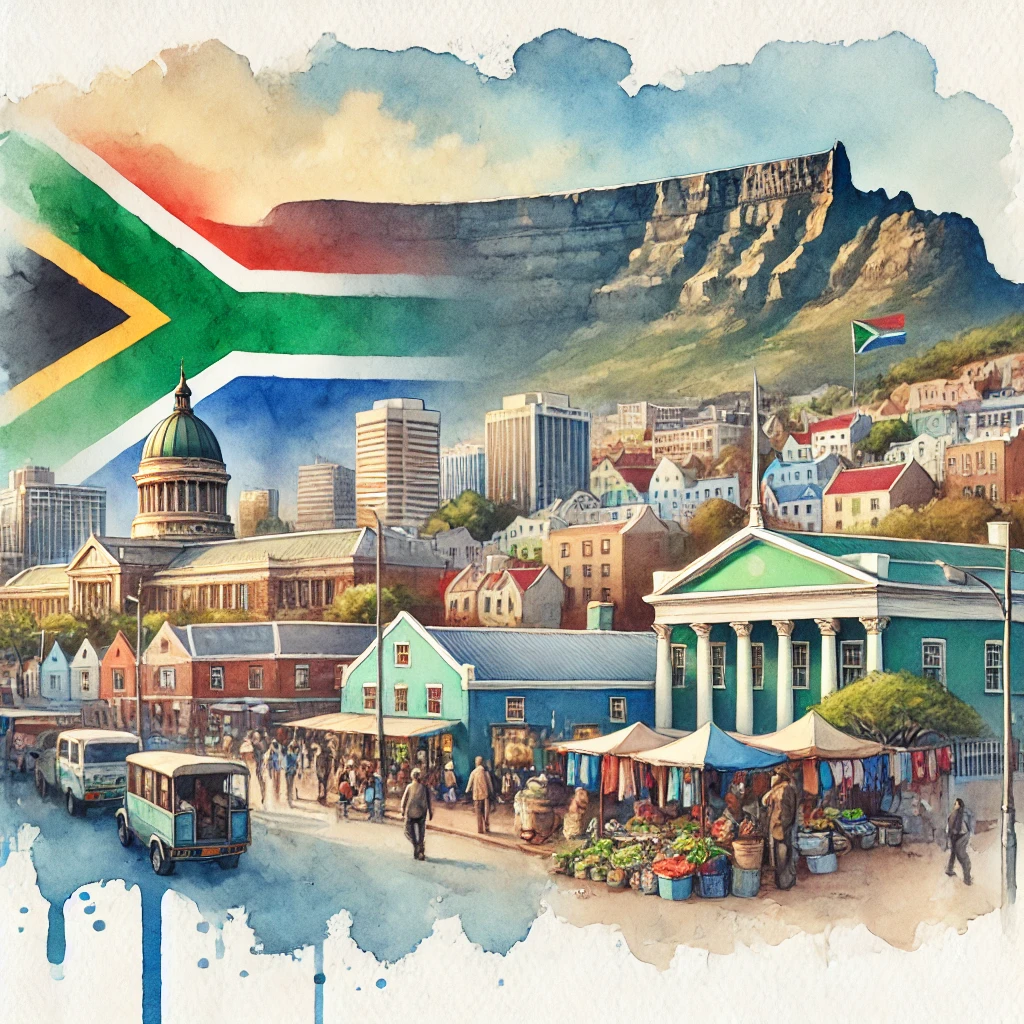
In 1962, Mandela was arrested and sent to prison. He stayed in prison for 27 years. The prison was a very small room on a small island, called Robben Island. During this time, he became a symbol of hope for many people around the world. He read books, studied, and kept his mind strong.
Finally, in 1990, he was set free. Soon after, Mandela worked with President F. W. de Klerk to end the apartheid system. They helped create a new South Africa with equal rights for everyone. In 1993, Mandela and de Klerk won the Nobel Peace Prize.
In 1994, South Africa held its first fair election. People of all races could vote. Nelson Mandela became the country’s first Black president. As president, he worked hard to bring white and black people together. He wanted peace between different groups, not more fighting.
Mandela motivated people with his kindness. He was not angry. He started the “Truth and Reconciliation Commission,” which allowed people to speak freely about past crimes. This helped the country get better. He also worked to improve education, hospitals, and medicine for all people who lived in the country.
After leaving office in 1999, Mandela continued to speak for human rights. He supported efforts to fight HIV/AIDS. People around the world admired his leadership and courage. They often called him “Madiba,” which is a special name in his Xhosa people.
Nelson Mandela passed away in 2013. He is remembered as a hero of freedom. His life story teaches us to avoid angry feelings and work to bring people together. By facing great challenges, he showed that one person can help change a whole nation.
Wolfgang Amadeus Mozart – Music Artist
Wolfgang Amadeus Mozart was a famous music artist from Austria. He was born in 1756 in the city of Salzburg. He showed great musical talent when he was very young. At only three years old, he watched his sister play the keyboard and learned quickly.
When Mozart was four, he began to write small pieces of music. His father, Leopold, recognized his talent. Leopold took Mozart and his sister, Nannerl, on concert tours across Europe. They played for rich people in many countries and amazed the listeners with their skills.
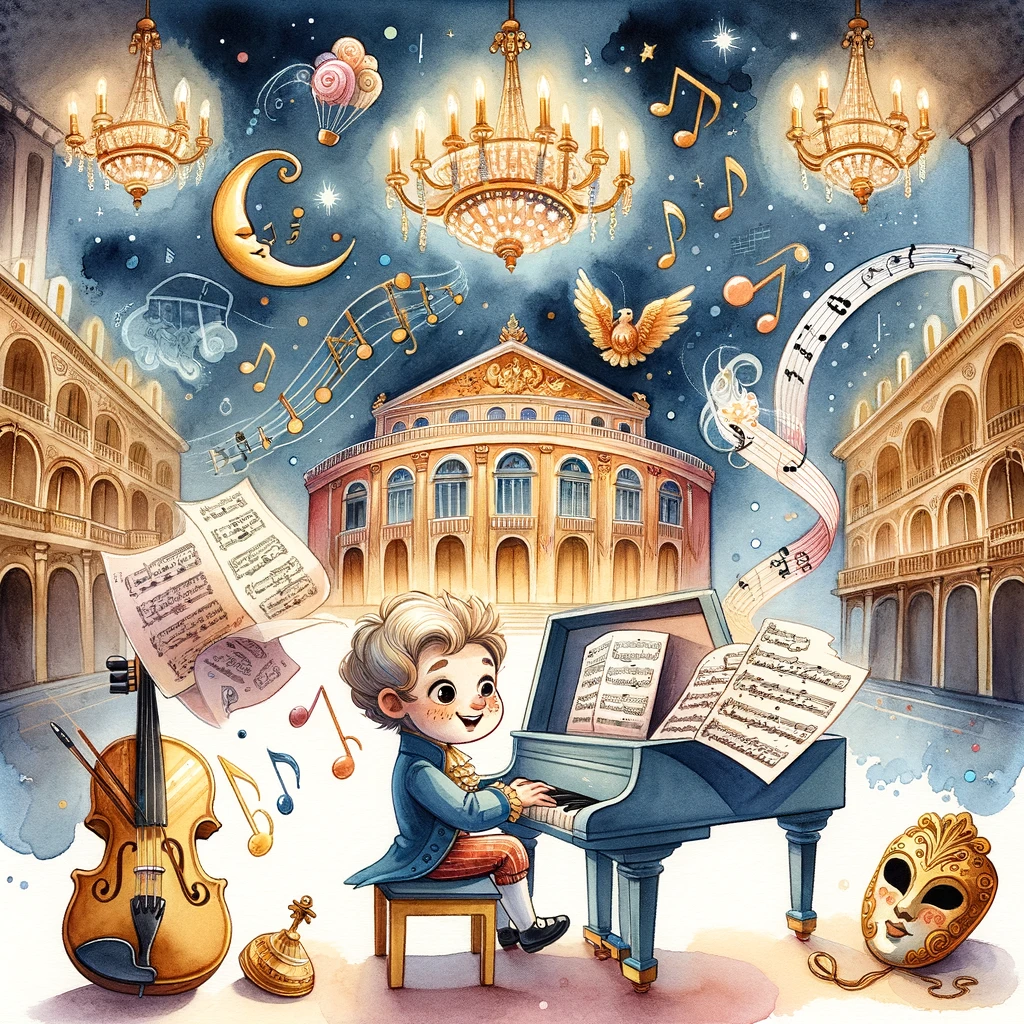
Mozart wrote music for different instruments, such as the piano and violin. He also wrote symphonies, operas, and chamber music. His style was full of beautiful melodies and interesting harmonies. Many people admired his work, even when he was still a child.
When he was older, Mozart moved to Vienna. He wrote some of his greatest works there, including The Marriage of Figaro, Don Giovanni, and The Magic Flute. These operas are still performed today. People love his music for its feeling and creativity.
Although he was a genius, Mozart faced money problems. He often changed jobs and did not always have enough money. He wanted freedom to compose the way he liked, rather than follow the strict orders from the rich people who paid him. This caused financial difficulty.
Even with these problems, Mozart kept composing. He wrote more than 600 musical works in his short life. He could create music very quickly and easily. Some stories say he wrote music down without making mistakes. His skill seemed almost magical to many people.
Mozart died in 1791 when he was only 35 years old. The exact cause is not certain, but he was ill for several weeks. Despite his early death, his music lives on. It continues to bring joy to people all over the world.
Today, Mozart is remembered as one of the greatest music artists in history. His works are studied and performed in concerts and schools. Musicians learn from his melodies and harmony. Mozart’s life story shows that talent and passion can make a lasting memory.
Junko Tabei – Mountain Climber
Junko Tabei was a Japanese mountaineer. She was born in 1939 in Fukushima, Japan. As a child, she was smaller and weaker than other children. However, she loved climbing mountains. She first climbed a mountain during a school trip, and she was excited.
Later, Tabei studied English literature in college. She also joined several climbing clubs. In Japan, some people thought women should not climb mountains, but Tabei did not listen to them. She believed women could do great things in outdoor sports.
In 1969, Junko Tabei started the Ladies Climbing Club, which was the first women-only climbing club in Japan. She wanted to create a safe place for women to train and help each other. She organized many trips to mountains in Japan and other countries.
Her biggest dream was to climb Mount Everest, the highest mountain in the world. In 1975, she led an all-woman Japanese team to Nepal. During the climb, an avalanche buried their camp. Tabei was caught under the snow, but her team rescued her.
Even with this danger, she continued the climb. On May 16, 1975, she reached the top of Mount Everest. She became the first woman in history to stand on that peak. This great achievement made her famous around the world and motivated many people.
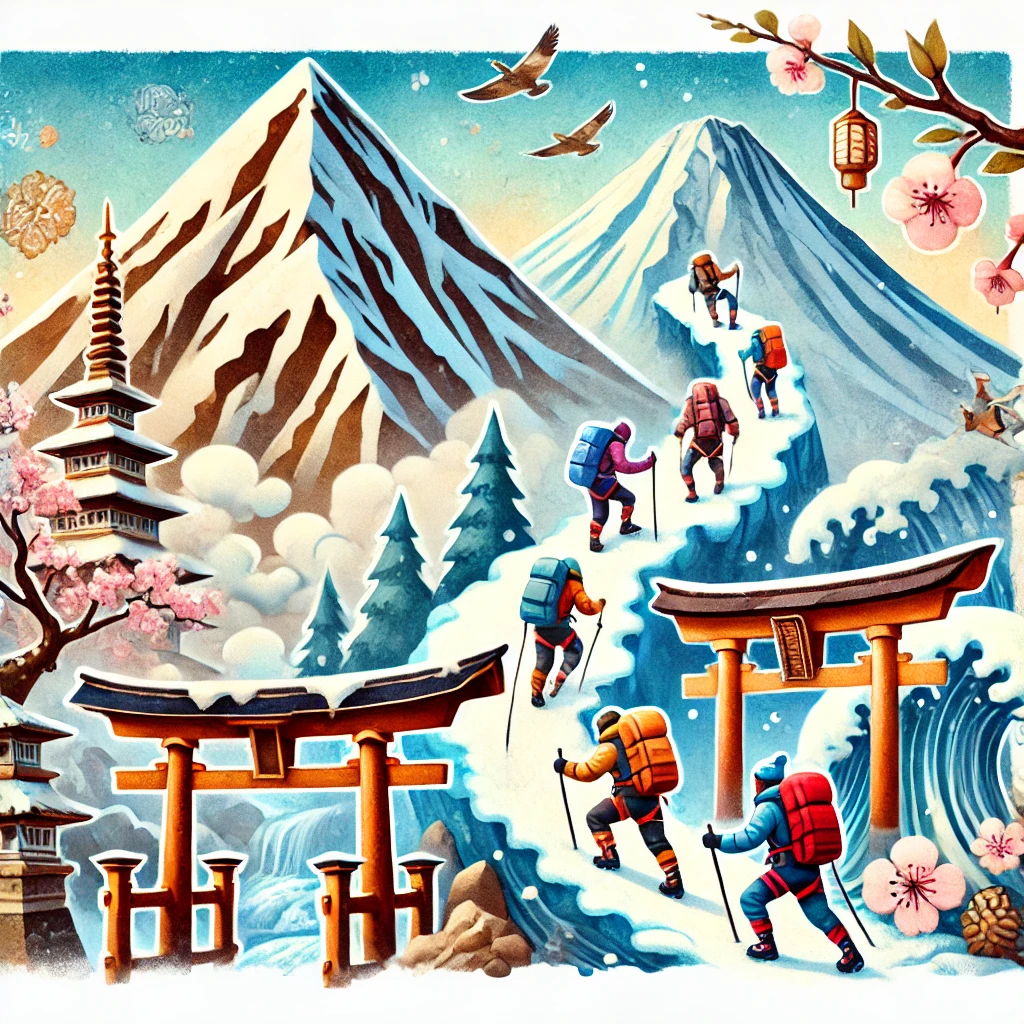
After Everest, Tabei did not stop climbing. She wanted to reach the highest mountain on each continent. She finished this goal in 1992, becoming the first woman to climb the “Seven Summits.” She was proud to show what women could do.
Junko Tabei also cared about the environment. She studied how tourism affects mountains. She asked people to protect nature and respect local communities. She worked to clean up trash on Mount Everest and other high mountains.
Tabei died in 2016 from cancer. However, her memory continues. Many young climbers look up to her as a role model. They remember her courage, hard work, and love for the mountains. Junko Tabei proved that with passion and teamwork, great challenges can be beaten.
Cleopatra – Queen & Leader
Cleopatra was a famous queen of ancient Egypt. She was born in 69 BC to the Ptolemaic family of leaders. This group came from Greece but ruled Egypt after Alexander the Great’s empire broke apart. Cleopatra was very smart and could speak many languages.
She became queen when she was about 18 years old. At first, she ruled with her younger brother. But they fought for power, and Cleopatra lost her position. She did not give up. She decided to work with Julius Caesar, a powerful Roman leader.
With Caesar’s help, Cleopatra returned to power. She traveled to Rome and met many important people there. After Caesar was killed, Cleopatra went back to Egypt. She later met Mark Antony, another strong Roman leader. They fell in love and worked together.
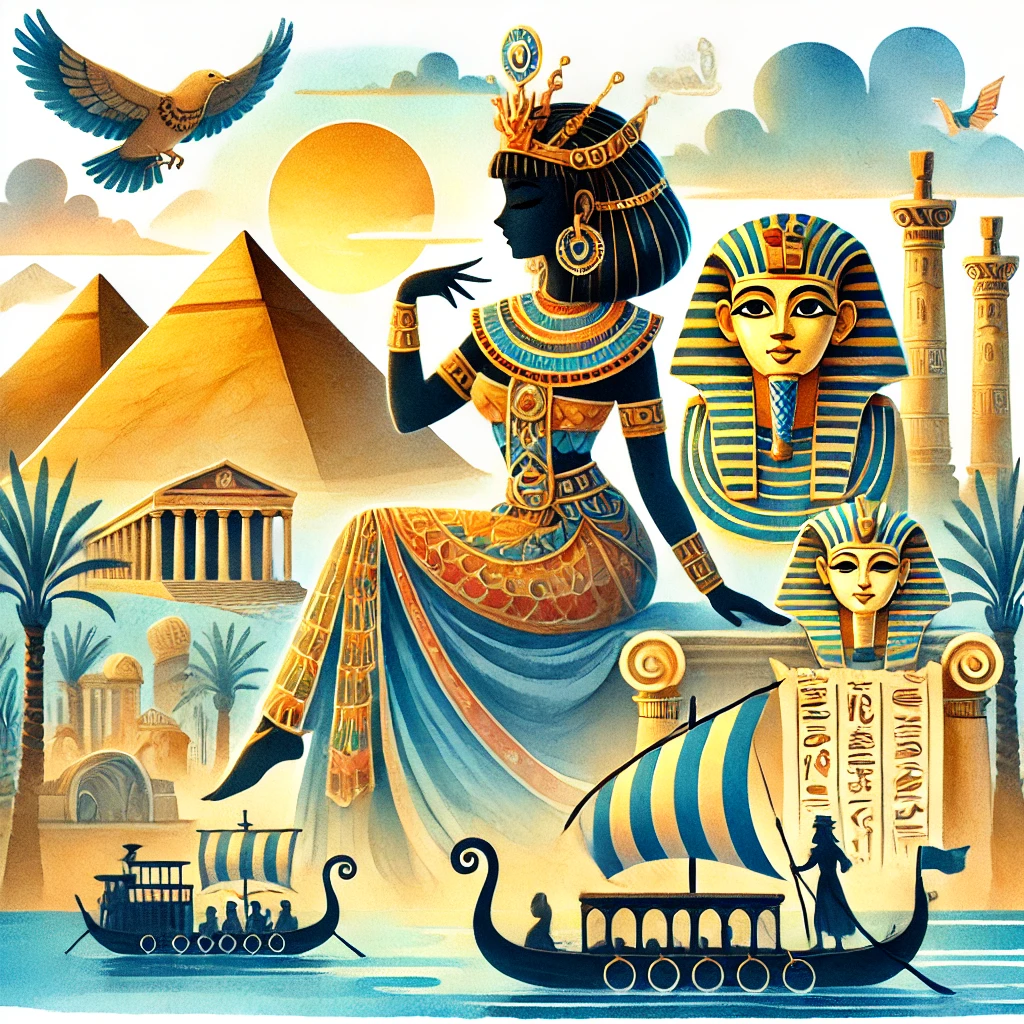
Cleopatra was known for her beauty, social skills, and intelligence. She wanted to protect Egypt from Rome’s growing power. She studied politics, economics, and culture. She also encouraged trade and built important relationships with many countries and businesses. People in Egypt respected her for trying to defend their land.
However, Rome saw Cleopatra as a danger. Eventually, there was a war between Mark Antony and another Roman leader named Octavian. Antony and Cleopatra lost the battles. They tried to run away. In the end, they knew they could not escape Octavian’s army.
According to popular stories, Cleopatra refused to be taken as a prisoner. She chose to end her life in 30 BC. Some say she used the bite of a dangerous snake. Even today, people who study history discuss the exact details of her death.
Cleopatra’s life was full of drama and political hard times. She tried to keep Egypt free from Roman control. She used her intelligence and social skills to hold power. Many people still find her story very interesting because of her leadership and personal relationships.
Today, Cleopatra is remembered as one of the most famous women in history. Writers and artists continue to tell her story. A famous movie was made about her life. She is seen as a symbol of power, beauty, and courage. Her life teaches us about strategy, ambition, and the ability to keep going and keep fighting.
Thank you for reading about these amazing people. Their stories show us how intelligence, bravery, creativity, and strong will can change the world.
Questions about the story:
1. Where was Albert Einstein born?
A) Berlin, Germany
B) Ulm, Germany
C) Princeton, USA
D) Bern, Switzerland
2. In what year was Nelson Mandela freed from prison?
A) 1962
B) 1975
C) 1990
D) 1994
3. Which country was Cleopatra the queen of?
A) Rome
B) Greece
C) Egypt
D) Babylon
4. What achievement made Junko Tabei the first woman in history?
A) Climbing Mount Fuji
B) Leading a women-only climbing club
C) Reaching the summit of Mount Everest
D) Winning a Nobel Prize
5. Which statement is true about Wolfgang Amadeus Mozart?
A) He was born in Vienna.
B) He wrote over 600 musical works.
C) He lived for more than 70 years.
D) He received the Nobel Prize in Physics.
6. Which year is called Albert Einstein’s “miracle year”?
A) 1899
B) 1905
C) 1921
D) 1933
7. What major political system did Nelson Mandela fight against?
A) Apartheid
B) Democracy
C) Communism
D) Monarchy
Answer Key:
1. Where was Albert Einstein born?
A) Berlin, Germany
B) Ulm, Germany ✅
C) Princeton, USA
D) Bern, Switzerland
2. In what year was Nelson Mandela freed from prison?
A) 1962
B) 1975
C) 1990 ✅
D) 1994
3. Which country was Cleopatra the queen of?
A) Rome
B) Greece
C) Egypt ✅
D) Babylon
4. What achievement made Junko Tabei the first woman in history?
A) Climbing Mount Fuji
B) Leading a women-only climbing club
C) Reaching the summit of Mount Everest ✅
D) Winning a Nobel Prize
5. Which statement is true about Wolfgang Amadeus Mozart?
A) He was born in Vienna.
B) He wrote over 600 musical works. ✅
C) He lived for more than 70 years.
D) He received the Nobel Prize in Physics.
6. Which year is called Albert Einstein’s “miracle year”?
A) 1899
B) 1905 ✅
C) 1921
D) 1933
7. What major political system did Nelson Mandela fight against?
A) Apartheid ✅
B) Democracy
C) Communism
D) Monarchy
Conversation Starters:
Working with a partner or small group, please discuss a few of these questions, and try to reference the content of the story as much as possible. Also, please try to use any grammar or vocabulary that you are studying recently, and take notes when you hear a new word or learn a new way to say something.
- If you could have dinner with one of these five people—Einstein, Mandela, Mozart, Tabei, or Cleopatra—who would you choose and why? What would you ask them?
- All of these people changed the world in different ways. Do you think intelligence, bravery, creativity, or strong leadership is the most important quality for making history? Why?
- Mozart, Einstein, and Tabei all showed their talents at a young age. Do you think people are born with special talents, or can anyone achieve greatness with enough practice?
- Cleopatra used her intelligence and social skills to keep power, while Mandela used kindness and forgiveness to unite a country. Which leadership style do you think is more effective?
- Tabei faced discrimination as a female climber, but she did not let it stop her. Can you think of other people (in history or in your own life) who broke barriers and achieved success?
- Einstein had a wild hairstyle, Cleopatra was famous for her beauty, and Mozart was known for his unique personality. Do you think appearance or personality helps people become famous? Why or why not?
- Imagine a time machine takes you back to meet one of these people. What modern invention or idea would you explain to them, and how do you think they would react?
If you are completing these conversations for a class activity, please share your group’s most interesting ideas and opinions with the rest of the class.


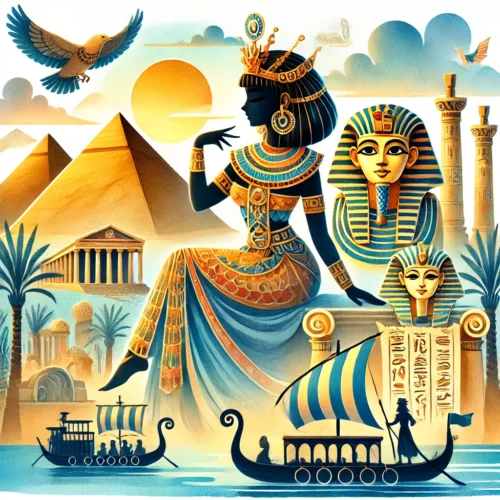
Leave a Reply